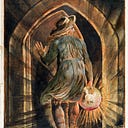Member-only story
Learning to live with viruses
“Humans need to balance the production of food, forest commodities and other goods with the protection of tropical forests.” — Amy Y. Vittor, Gabriel Zorello Laporta & Maria Anice Mureb Sallum
An infection occurs when a microorganism enters a person’s body and causes harm. The microorganism uses that person’s body to sustain itself, reproduce, and colonize. These infectious microscopic organisms are known as pathogens, and they can multiply quickly. Examples of pathogens include:
- bacteria
- viruses
- fungi
“Viruses are not living things. They’re complicated assemblies of molecules, including proteins, nucleic acids , lipids, and carbohydrates, but on their own they can do nothing until they enter a living cell. Without cells, viruses would not be able to multiply. Viruses are found in almost every ecosystem on Earth and are the most numerous type of biological entity. (The Journal of Biological Chemistry. 284 (19): 12599–603. doi:10.1074/jbc.R800078200. PMC 2675988. PMID 19158076.)
The “Roosevelt–Rondon Scientific Expedition” was a survey expedition in 1913–14 to follow the path of the Rio da Dúvida (“River of Doubt”) in the Amazon basin. It was jointly led by Theodore Roosevelt, the former President of the United States, and Colonel Cândido Rondon, the Brazilian…
